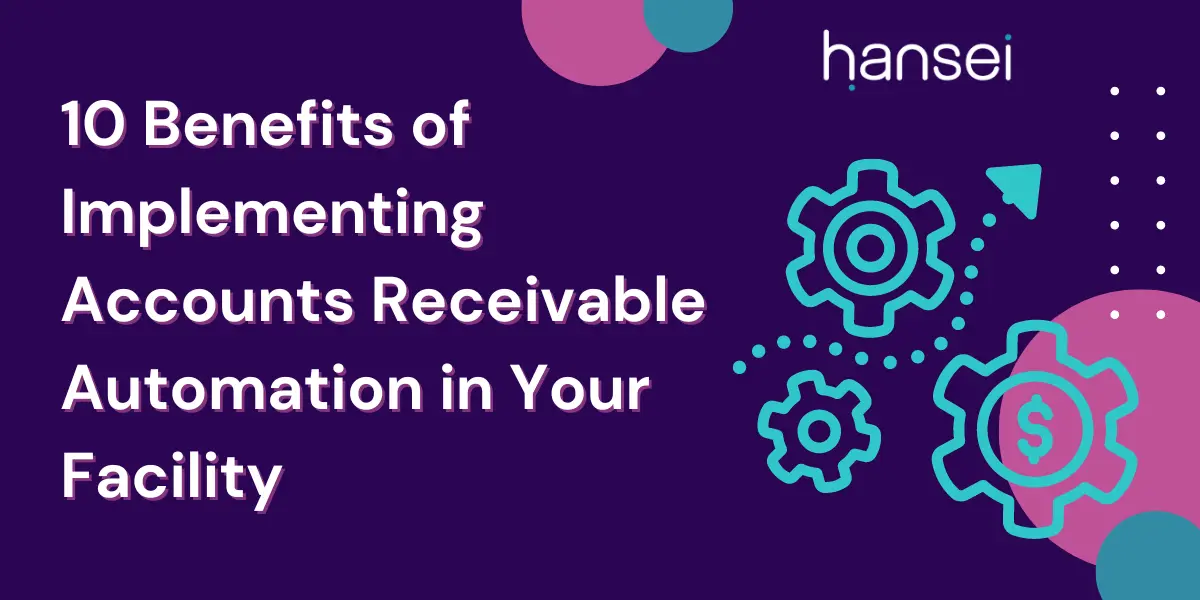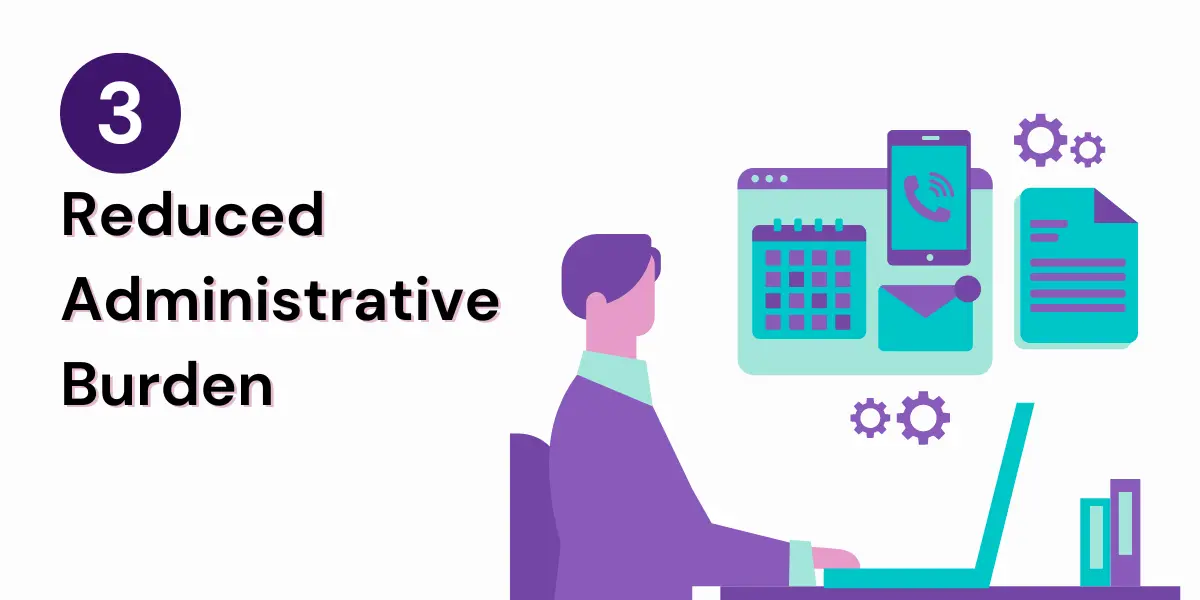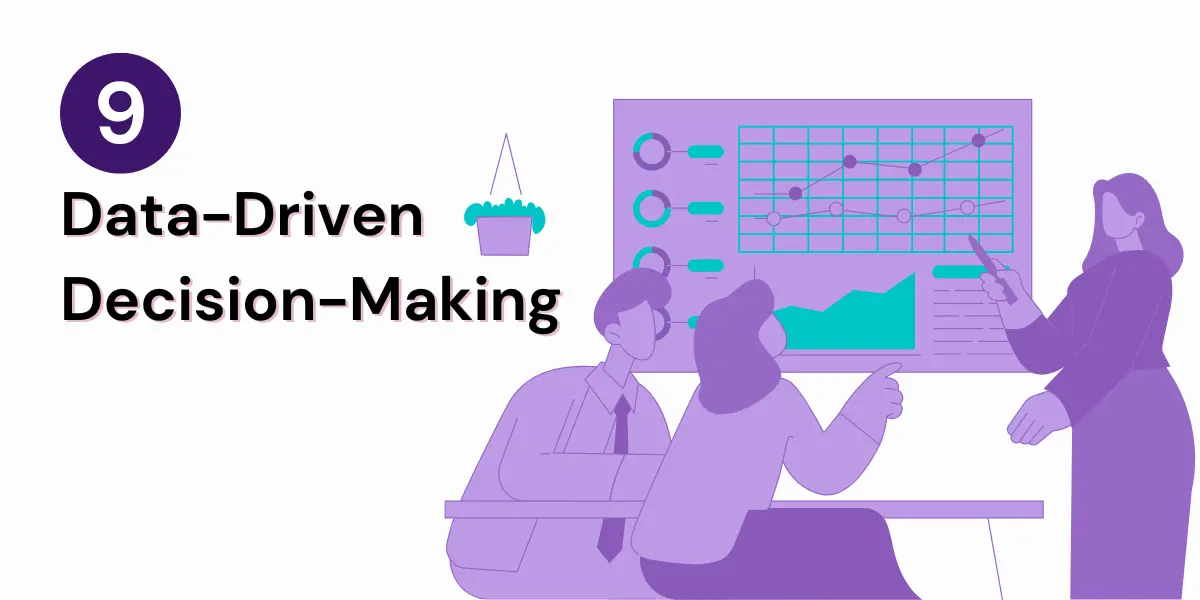Blog

Metal health and addiction treatment facilities play a vital role in the community they serve. To ensure the sustainability and longevity of these facilities, managing finances and cash flow is crucial. Implementing accounts receivable automation in the billing process of these facilities can help to ensure that the revenue cycle is uninterrupted.
Hansei wants to share ten benefits of implementing accounts receivable automation into your mental health and addiction treatment center’s billing structure.
1. Accelerated Cash Flow
Mental health and addiction treatment facilities often face delayed payments due to how complex the healthcare billing process is. Accounts receivable automation expedites the payment process by reducing claim processing times. This results in faster reimbursements, ensuring that facilities have the necessary funds to maintain their operations, support their staff, and provide quality care to patients.
2. Improved Financial Stability
Consistent cash flow is essential for the financial stability of mental health and addiction treatment facilities. Accounts receivable automation provides predictability in revenue streams, allowing organizations to plan and allocate resources effectively. This financial stability is crucial for long-term sustainability and the ability to offer continuous care to patients in the communities they serve.

3. Reduced Administrative Burden
Manual data entry and billing processes can be labor-intensive and are prone to errors. Accounts receivable automation minimizes the administrative burden on staff by automating data validation and verification. This reduces the risk of billing errors, claim denials, and the need for extensive manual corrections, freeing up staff to focus on patient care.
4. Enhanced Claim Acceptance Rates
Claim denials are a common challenge in the healthcare industry, and mental health and addiction treatment facilities are no exception. Accounts receivable automation includes features like claim scrubbing, which automatically identifies and rectifies errors or inconsistencies in claims before submission. This leads to improved claim acceptance rates, ensuring that facilities receive timely reimbursements.
5. Streamlined Workflow
Automation streamlines the entire accounts receivable process, from claim submission to payment posting. This efficiency allows mental health and addiction treatment facilities to handle a higher volume of claims without increasing their administrative overhead. It also reduces the time spent on manual follow-ups, enabling faster resolution of payment disputes.
6. Real-Time Monitoring and Reporting
Mental health and addiction treatment facilities require real-time insights into their financial health. Accounts receivable automation provides real-time visibility into the status of outstanding claims, enabling facilities to monitor progress, identify bottlenecks, and take prompt action to resolve payment issues. Advanced reporting capabilities offer insights into revenue trends and performance metrics, facilitating data-driven decision-making.
7. Cost Savings
Efficiency gained from accounts receivable automation translates into cost savings. By reducing the need for extensive manual data entry and minimizing the risk of billing errors, facilities can allocate their resources more effectively. Automation also reduces reliance on paper-based processes, leading to savings in printing, postage, and storage expenses.
8. Enhanced Focus on Patient Care
Automation frees up valuable staff time, allowing mental health and addiction treatment facilities to provide better care to their patients. When administrative tasks are streamlined and errors are minimized, staff can dedicate more time to patient needs, including counseling, therapy, and support services. This ultimately leads to improved patient care, outcomes, and satisfaction.

9. Data-Driven Decision-Making
Access to real-time data and comprehensive reporting empowers mental health and addiction treatment facilities to make informed decisions. This data-driven approach helps in identifying revenue trends, optimizing operational processes, and planning for future growth. With accounts receivable automation, the ability to analyze data and adjust strategies is a valuable asset.
10. Compliance with Regulations
Compliance with healthcare regulations is crucial in mental health and addiction treatment services. Accounts receivable automation solutions are designed with compliance in mind. This ensures sensitive patient information is handled securely and in accordance with industry regulations, including the Health Insurance Portability and Accountability Act (HIPAA). This reduces the risk of compliance violations and associated penalties.
Hansei Makes Accounts Receivable Automation a Reality
Accounts receivable automation can transform how mental health and addiction treatment centers provide care and bill for their services. With Hansei’s accounts receivable management, facilities can keep track of unpaid invoices, maximize cash flow, become more efficient, and minimize the risk of bad debt or compliance errors.
Hansei’s accounts receivable solutions, including accounts receivable automation, simplifies how mental health and addiction treatment centers manage billing and its associated processes. For more information on implementing accounts receivable automation reach out to Hansei today!

Ready to focus on providing healthcare? Let us lighten your load.
We’re here to address your pain points and create growth opportunities for your organization. We’re passionate about what we do, and it shows in every interaction. Learn what makes us tick and schedule a demo today.